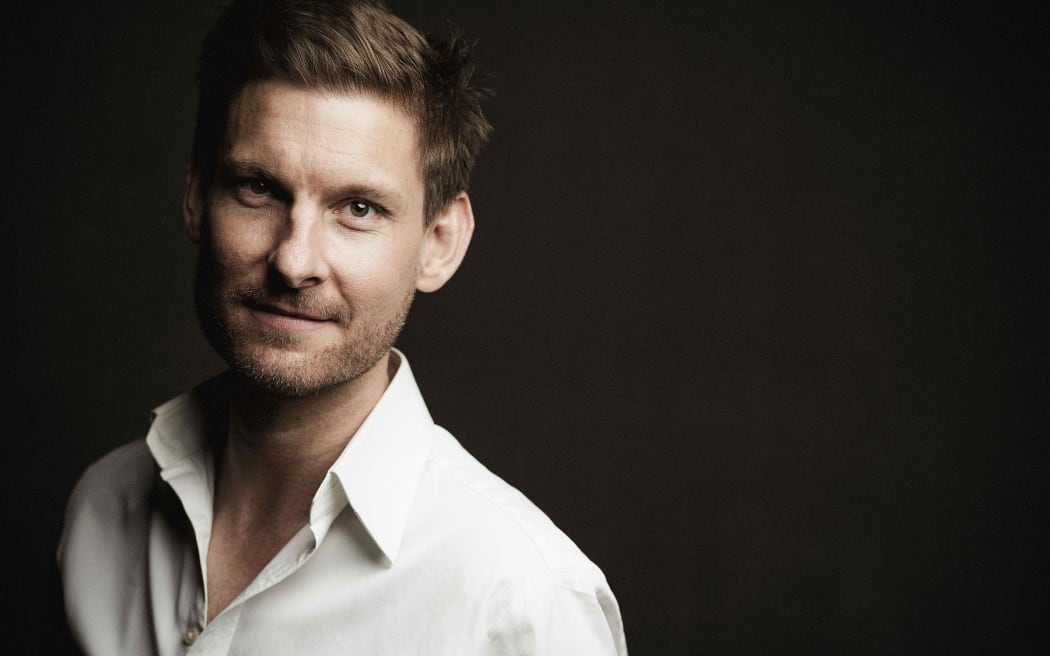One of the Auckland Philharmonia's 'Baroque & Beyond' concerts, giving us a fresh perspective on some masterpieces from the Baroque era by pairing them with 20th Century pieces that they inspired.
This particular concert titled ‘Brandenburg’ features as a special guest, the Australian harpsichordist Kristian Bezuidenhout. He and the concertmaster Andrew Beer share the director’s duties.

Kristian Bezuidenhout Photo: marco borggreve
PÄRT: Collage on B-A-C-H
Arvo Pärt wrote this work in 1964. It was the first of his pieces using a collage technique in which he wove music using 12-tone serialism with borrowed material from earlier composers ... in this case, Bach of course.
There are three movements, each with a title referring to a Baroque form: Toccata, Sarabande, and Ricercar. The Sarabande is based on Bach’s English Suite in D minor and uses the notes B, A, C, and H, which to German people like Bach refer to the notes Bb, A, C and B natural.
BACH: Keyboard Concerto No 1 in D minor BWV1052
There are seven complete harpsichord concertos by Bach in existence. Scholars agree that most of them are arrangements of earlier concertos for other instruments – although none of these earlier works have been found so there’s still a certain amount of conjecture and supposition.
The first score in Johann Sebastian’s hand dates from around 1738 but versions of all three movements of the D minor Concerto occur in a couple of his cantatas written in the late 1720s – here they occur as movements with a solo organ part.
For a while it was thought that this concerto in its very original form was a violin concerto – the figuration often suggests a solo violin part. But recent scholarship has cast doubt on that theory.
This is perhaps his best known of Bach's harpsichord concertos and it’s a cracker. The high energy continues through the outer two movements and there’s a brief contemplative interlude for the second.
PÄRT: If Bach had been a Beekeeper...
In the 1970s, Arvo Pärt went through a period of transition in his composition style. Early in his career he would compose mostly using serial techniques, but his later works are simpler harmonically and rhythmically. He came to describe these new works as tintinnabuli – like the ringing of bells, and they often reach for deep spiritual meaning.
If Bach had been a Beekeeper, composed in 1976, marks the beginning of this transition. But again, like in the Collage, Bach is an inspiration.
The first half of the piece has four sections, each one starting with the notes B, A, C, H (that’s Bb, A, C and B natural, remember) – you’ll hear them played by the piano. And the strings play buzzing sonorities, hence the title.
The work ends with a coda based on Bach’s Prelude in B minor from Book 1 of the Well-Tempered Clavier.
BACH: Brandenburg Concerto No 5 in D BWV1050
Bach compiled a set of six concertos and presented them in 1721 to Christian Ludwig, Margrave of Brandenburg-Schwedt, who had shown interest in Bach’s work, along with a frankly grovelling dedication that reads in part: “begging Your Highness most humbly not to judge their imperfection with the rigour of that discriminating and sensitive taste, which everyone knows Him to have for musical works, but rather to take into benign Consideration the profound respect and the most humble obedience which I thus attempt to show Him”.
The six concertos are considered amongst the best orchestral works of the baroque era and are scored for the variety of instruments that Bach had at his disposal in his position as Kapellmeister at Köthen.
There are three solo parts in No 5: harpsichord, violin and flute. The harpsichord part is much more significant than the other two though, so the work can be viewed as a harpsichord concerto – in fact probably the very first harpsichord concerto ever written, kicking off the genre that would stretch through to the piano concertos of Mozart, Beethoven, Brahms, Tchaikovsky, Rachmaninov and so on.
Recorded by RNZ Concert in Holy Trinity Cathedral, Auckland, 4 October 2022
Producer: Tim Dodd
Engineer: Adrian Hollay

